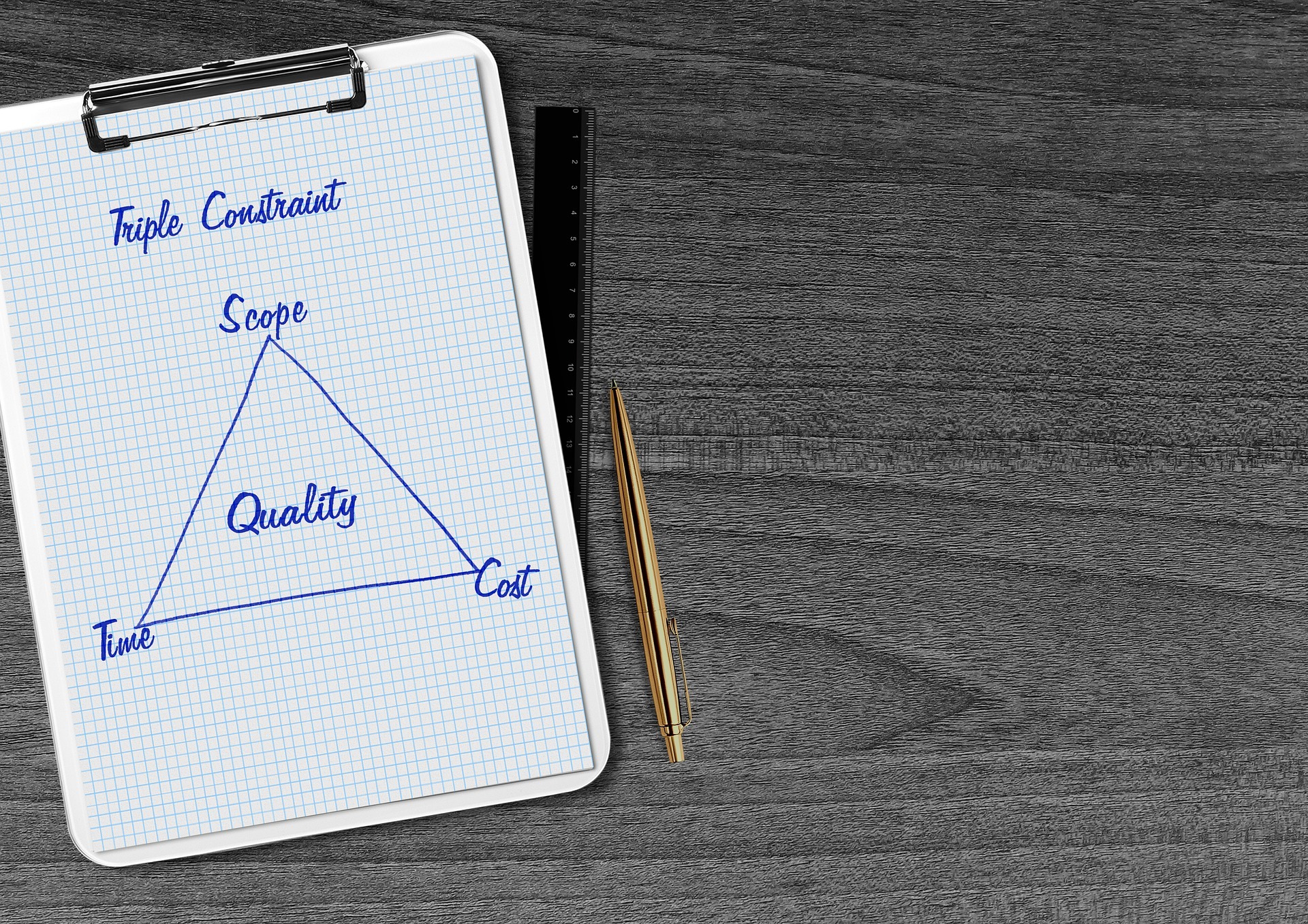What are the 5 phases of a construction project?
If you are planning a building or construction project, you will be considering the role of a project manager. But what are the five phases of a construction project?
Our London based project management consultancy works with clients in London and the surrounding areas to make sure each stage of the project runs smoothly.
Below we look at each of the major phases in construction project management.
Major Phases In Construction Project Management
Given that construction industry projects are often large in scale, it is prudent to divide the job into project phases to ease project management. This article will take you through the five typical stages in which construction projects are usually separated. These stages are typically known as, Initiation,
Planning, Implementation, Performance and Monitoring and Closing. These phases will allow a project manager and their construction management team to create an efficient plan for their project before it begins, assess the project as it unfolds to make sure that it adheres to the project plan before finally determining whether the project had completed the goals set out when the project was initially proposed.
Initiation
This stage of project management requires the project manager to assess the conception of the work that is being proposed. The construction manager will usually do this via a feasibility test to see whether the suggested job is viable according to its goals and worth undertaking.
The project manager will look at the proposed work on a general level and note methods for the management team to meet specific needs. The project manager should not do this alone.
The project team should also be included in this stage of the construction project. Once the entire team has reached a consensus on the project's goals and how they will be delivered, they must produce a Project Initiation Document (PID). This will act as a general guide to the whole project, allowing the project management team to assess the level of the process they are currently working on.

Planning
Whether the construction project is taking place on a single site or several, the planning phase is essential. At this stage, the project manager and their management team assess the project's scale and develop clear, professional communication and a guide of how the job should unfold.
A crucial part of this stage is evaluating resources, ensuring that they account for and source as many materials and equipment as they need to see the project through from start to finish.
Each goal established during the planning stage should conform to a pair of acronyms.
The first is SMART: Specific, Measurable, Attainable, Realistic and Timely.
The second being CLEAR: Collaborative, Limited in scope, Emotional, Appreciable and Refinable. Plans that provide precise time scales for the various jobs included in the project will be helpful here.
Creating a budget for materials, labour, and other expenses involved in the project will also benefit. This will ensure that the project management team's plan is as accurate and detailed as possible.
Implementation
This next stage of the process is where the project manager and their construction management team will spend most of their time. After producing a detailed strategic plan for the construction project they are undertaking, this plan must then be put into action.
Ensuring that the work unfolds according to the pre-determined schedule is essential, ensuring that the budget is strictly adhered to. The purpose of creating a plan is also evident as the project unfolds. Should any deviations occur from this plan, these can be noted, and solutions can be found.
This also allows for possible future issues to be identified before they arrive, which would otherwise cause undue delays to the project.
You may find evidence of a successful implementation or execution phase if the project management team have gathered a robust collection of workforce staff and subcontractors, who all understand their respective work in detail and have the resources sufficient to carry out their jobs according to the pre-determined time scale and budget.
As the project proceeds, the construction project manager and the building management team need to conduct regular meetings and accurately track their progress.
This will allow them to know whether the building construction is developing according to their plan. If they find that the project is deviating from their goal, this allows them the opportunity to correct any mistakes made to avoid future errors and delays.
Performance and Monitoring
This stage of project management coincides with the implementation stage. As the project unfolds, the project manager and the construction team will assess and control the work's performance regarding the project plan.
This phase of the project should then be repeated regularly throughout the project to evaluate and maintain its adherence to the schedule. Every aspect of the commercial building project should correspond with the pre-determined construction management plan.
The most efficient way to measure this adherence is through the implementation of KPIs. Key Performance Indicators will allow the project manager and their team to know whether their work meets the goals established during the planning stage. KPIs may include effort and cost tracking, which will determine whether the work meets the budgeting criteria. Project performance will also monitor unforeseen delays in the construction work.
Quality deliverables will allow the construction management team to assess whether specific tasks will meet the goals set out for them. Finally, project objectives will allow the project manager to determine whether the project's goals and schedule are being fulfilled.
Closing
This final stage of the project management process is potentially the most crucial. In the closing stage of the project's life cycle, the construction manager and their building management team finally deliver the project's completed initial goals.
They must determine that any weaknesses revealed in the performance and monitoring stage have been rectified upon project completion. Before finalising any supplier contracts or work orders with the general contractors, the construction management team must review provisions of termination and provide written notices to any necessary entities.
They must also conduct further assessments to analyse any new developments discerned throughout the construction process.
They must identify where things went wrong and how they can be prevented going forward. This will allow future project management teams to learn from their mistakes, ultimately leading to more efficient projects with fewer delays.

Altogether, you can see how these phases will help project managers and their building construction teams to oversee and coordinate projects that are vast in scope.
By delineating the jobs required to complete the project into phases, the project management team can assess all the moving parts of the project's needs and performance at any point during the process. These phases also allow the project management team to implement the necessary procedures in their project plan effectively.
Whilst the project is underway, having a detailed plan complete with clear and concise goals is the best way for the project manager and their team to determine whether their project is running to schedule.
As mentioned earlier, pre-determined time scales and budgets will help the project manager know whether their project is running to the clients' specifications or the commercial company stakeholders that initially commissioned the project.
Are you considering the job of a project manager in construction? If you live in Twickenham or the surrounding areas of London our RIBA registered architect can help. Contact our expert today for construction project management in London.
Architects Near Me
Are you looking for architects near me? If you are looking for RIBA local architect services in Twickenham and the surrounding areas. Trimble Architects works with clients throughout London and the surrounding areas including:


